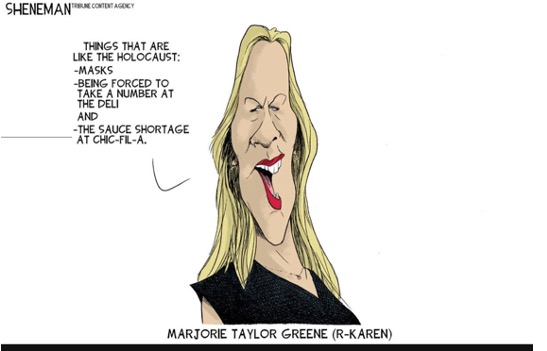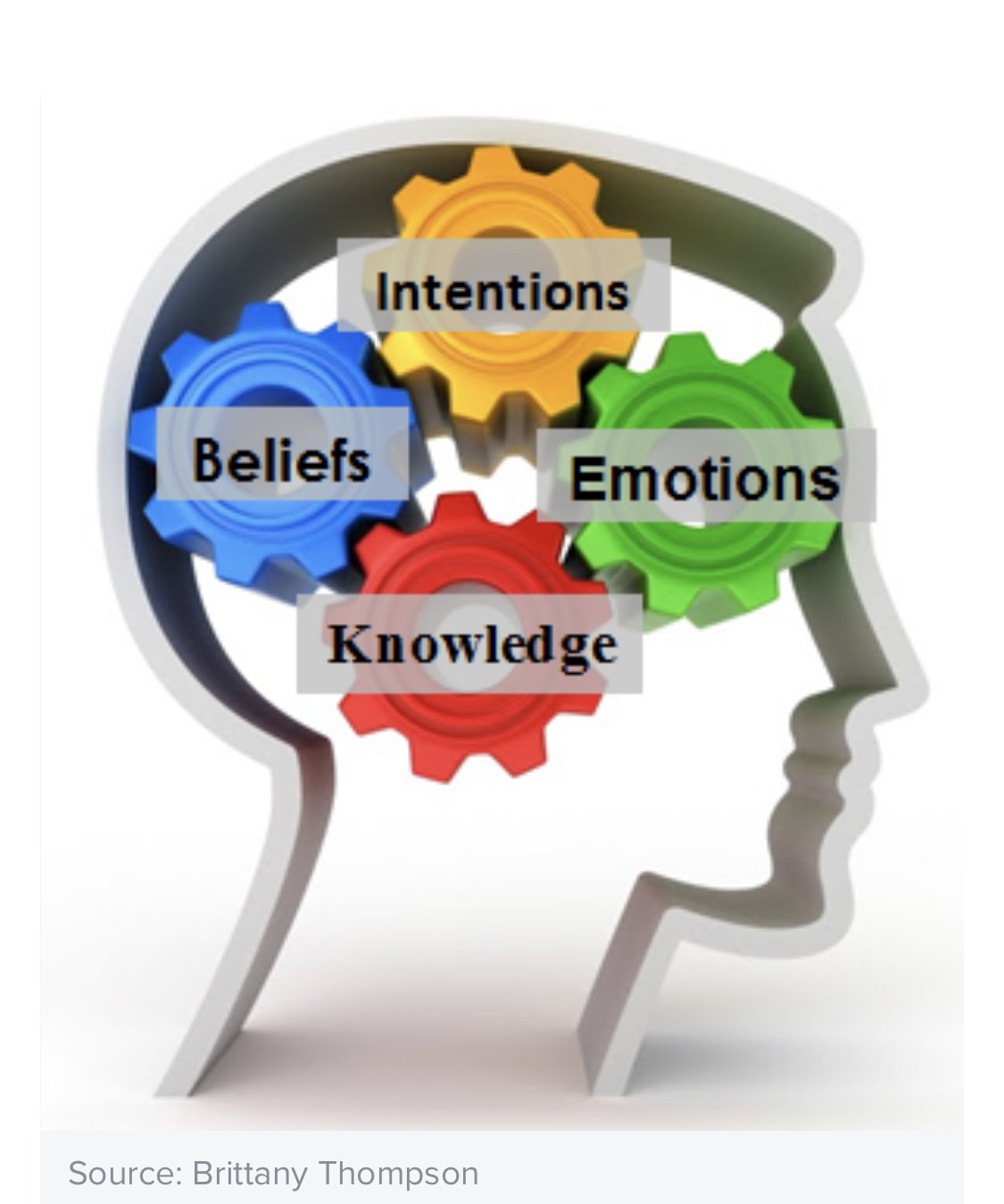Uncertainty abounds all over the global village, from the Israel-Palestinian conflict to the Russian autocratic policies across Europe, to the economic wrestling with China, to the hijacking in Belorussia, to the struggling survival of the Sudan. We are confronted every day with tremendous uncertainty.
But it is not just distant uncertainty; it is the uncertainty that has captured our land. Geographic uncertainty as rural areas are feeling neglected, disrespected, and misunderstood. The death, isolation, and job challenges caused by the pandemic. A spike in mass shootings across the country. Unruly behavior from biting on airplanes, to spitting, throwing water bottles and popcorn at NBA Playoff games to storming PGA golf fairways. Challenges to our democracy and electoral processes. Calls from a former Presidential Advisor for a military coup. Increased institutional warfare leading to an “all in on outrage” as a strategy in Congress.
Uncertainty that has transformed how we view people. Increased racial tension with a spike in antisemitic incidents across the country and growing Asian hate crimes. Increased police scrutiny relative to violence against people of color. An uprising of political actions to hide the violent history against Native Americans and Blacks. Dehumanization makes it easier to see people as a “temptation”; someone to eliminate or consider as not worthy of equal rights or privileges.
We are subject to painful reflections about the hateful, subconscious beliefs with which some continue to drape our existence. To make it worse, as Jeremiah said in Chapter 12, “we have planted and haven’t seen a harvest.” We’ve been planting since 1619. Through the various military exploits of this nation, we’ve been planting. Through the transforming revolts of each era, we’ve been planting. Through the modification of constitutional legislation and amendments, we’ve been planting. Through marches and protests, we’ve been planting. Yet, we are still not saved.
And in our individual lives, we all have our own stories of struggle. How are you going to meet your financial challenges? How are you going to respond to the doctor’s diagnosis about you or a family member? Feelings of uncertainty about your job or job opportunities. Will you be able to avoid the foreclosure pending on your house? Or even the foreclosure already in process; will you be able to redirect it. And when the foreclosure evicts you, where will you live. How will you make your way? We are in some difficult times.
What will become of this nation as two sharply contrasting visions clash on the political horizon. The topography of their outcomes will set the direction for this nation. I asked myself, what should the Churches response be? It became apparent to me our response does not need to be complicated. Some people are looking for some theological mystery to be unraveled. As the songwriter says, “Gotta keep it real simple, get right back to ground zero. When it all comes down to this: Love God and love people.” Another songwriter adds, “What if we came down from our towers and walked a mile in someone else’s shoes. If the church wants to see a change in the world out there, it’s got to start right here.”
In the words of the honorable Bishop Arthur M. Brazier, “We can’t just be satisfied functioning within the physical and philosophical walls of the church building. We have to apply Christian principles to the solutions of the great social problems of our time. Our faith calls us to see civic and political responsibilities through the eyes of faith and to bring our moral convictions to public life. As believers we are called to be a community of conscience within the larger society and to test public life by the values of scripture.”
The church should serve as a moral conscience to society and should seek to respond to our social, economic and political as well as spiritual needs. Faith and Justice need to become as one flesh in service of God and social transformation. Our individual activities in this regard, can be a calling only if it is viewed as a mission of service to something beyond merely our own interest. I believe we are to articulate and live out these views in ways that are theologically faithful, exegetically careful and personally sustainable.
Pastor Rick Warren in The Purpose Driven Life opens with, “It’s not about you. The purpose of your life is far greater than your own personal fulfillment.” Too often decisions are based on self-interest and justified by that belief.
But, as with most subjects in the 21st-century U.S., opinion soon polarizes along partisan lines. This country is becoming devoid of places where differences are valued. Even in our churches, the ideological divide has become more locational than denominational as people are more likely to live and worship among people who share their worldviews and to spend free time with them. The ability to hear each other is muted by the echo chambers of political and racial speak.
When did hate become so ordinary in the church? Love, empathy, forgiveness, mercy, and compassion is disappearing. We begin to grasp divisive rhetoric and use labels as shortcuts to conversational hearing. Labeling closes minds to hearing or learning. It ignores the nuances and details of situations, then creates misinformation.
Some are raising objections to any attempt to “fill in the blanks” of American history. Any conversation that challenges an interpretation of America’s national identity neglects the trauma inflicted in creating that identity. National identity is divided along critical axis of class, faith, or race. Creating the foundation of the threefold objection – one, that this country belongs to a unique set of people. Two, the church supported slavery’s legacy. And three, slavery’s legacy still shapes American life today—an argument that is less radical than it may appear at first glance:
- The QAnon theory is more popular today among evangelicals than people of other religions, according to a study by the conservative American Enterprise Institute.
- States are implementing educational laws that teaching history in schools “may not define American history as something other than the creation of a new nation based largely on universal principles stated in the Declaration of Independence.”
- The Texas Governor is threatening to withhold lawmakers pay if they don’t come back into session and vote for the Restrictive Voting Bill.
- “We birthed a nation from nothing. There was nothing here in America before white colonizers arrived, and Native people haven’t contributed much to American culture.”
- Backlash on the 1619 Project, which outlines the theft of labor and land, because it centers its voice on the history of Black people instead of telling a story of a glorious longstanding idea of the past – men who founded a country then built it into a Christian nation.
- Thirty per cent of Republicans endorsed the idea that the country is so far “off track that American patriot’s may have to resort to violence” against their political opponents.
- Senator Ron Johnson has sent letters to acting U.S. Capitol Police chief casting doubt that Officer Brian Sicknick’s death was related to the attack on the Capitol.
- Pastor’s teaching Critical Race Theory as anti-biblical because it addresses the effect of racial bias and erosion of advances made by Blacks in the ’90s instead of only assigning individual responsibility to their outcomes.
- The Black body is always guilty of something; therefore, whatever the police do to them is self-caused and justified.
- Blue Lives Matter, except when conservatives attack them.
- The Black Lives Matter Movement is a Marxist hate group and not a quest for equality, justice and humanity.
- Biden’s presidency is illegitimate because the votes from people of color, who voted in record numbers, should not be counted.
- Asians in America were responsible for COVID and the attacks on them are understood.
- Native Americans were savages and their extermination by the cowboys was heroic.
- The January 6 insurrection was a “tour of people” who are, understandably, not happy with the country’s direction.
- Christianity and America is God’s gift to White people.
So many people live in a state of misinformation. What they are invested in banning is simply a complete and accurate accounting of American history! Claiming all discussions reflect “a displacement of historical understanding by ideology.” How do you heal the nation if facts are distorted and no one is listening to each other?
“The only problem that can’t be solved
is the one we pretend doesn’t exist.”
We can’t depend on the political landscape to heal our nation. And let’s avoid any false moral equivalency between the two parties. Historically, one side defining good for its purposes and assigning evil to the opposition has led to further social violence. Democratic Rep. Ilhan Omar (D-Minn.) shouldn’t have engaged in antisemitic rhetoric. Rep. Maxine Waters (D-Calif.) shouldn’t have urged anti-racism protesters to be “more confrontational.” As reported by the Washington Post, Marjorie Taylor Greene (R-Ga.), a star of the right, was observed accosting Alexandria Ocasio-Cortez (D-N.Y.) as she was exiting the House chamber. Taylor later made negative comments connecting mask, Jews, and the Holocaust.
And yet Greene isn’t really that much of an outlier in the House Republican caucus alongside the likes of Reps. Matt Gaetz (Fla.), Louie Gohmert (Tex.), Lauren Boebert (Colo.), and other Freedom Caucus members who want a White’s only party.
“As believers we are called to be a community of conscience within the larger society and to test public life by the values of scripture.”







